General Motors is once again asking owners of 2017-2019 model year Chevy Bolt EV crossovers to park their cars outdoors amid concerns the vehicles will spontaneously catch fire.
The automaker received reports of two separate Chevy Bolt EV battery fires this month, both of which involved vehicles that had already been repaired as part of its widely publicized recall campaign for the battery-electric compact car. One of the fires involved a vehicle owned by a Vermont state lawmaker, while the other involved a private citizen’s vehicle located in New Jersey.
In a statement sent issued Wednesday, GM said it is advising owners of Chevy Bolt EV vehicles involved in the recall campaign to park their vehicles outdoors for the time being.
“General Motors has been notified of two recent Chevrolet Bolt EV fire incidents in vehicles that were remedied as part of the safety recall announced in November 2020,” the company said. “Out of an abundance of caution, we are asking owners of 2017-2019 Chevrolet Bolt EVs who were part of the recall population to park their vehicles outdoors immediately after charging and not leave their vehicles charging overnight while we investigate these incidents.”
GM previously issued a recall for 69,000 examples of the 2017-2019 Chevy Bolt EV after it received numerous reports from owners that their vehicle’s battery pack overheated and suddenly caught fire. As part of the recall campaign, dealers were instructed to inspect the battery packs of affected vehicles and install an onboard diagnostic software capable of detecting major battery pack problems before they occur. Both of the vehicle fires in Vermont and New Jersey involved vehicles that were already repaired as part of the recall campaign, however, prompting GM to issue new safety guidance for owners of affected models.
“At GM, safety is our highest priority, and we are moving as quickly as we can to investigate this issue,” the automaker added.
GM has also offered to buy back some Chevy Bolt EV models involved in the initial recall campaign, but the buyback offers are only being issued in states where certain Lemon Laws apply.
We’ll provide an update on the Chevy Bolt EV battery fires as GM continues to investigate the matter. In the meantime, be sure to subscribe to GM Authority for more Chevrolet Bolt EV news, Chevrolet news, and around-the-clock GM news coverage.

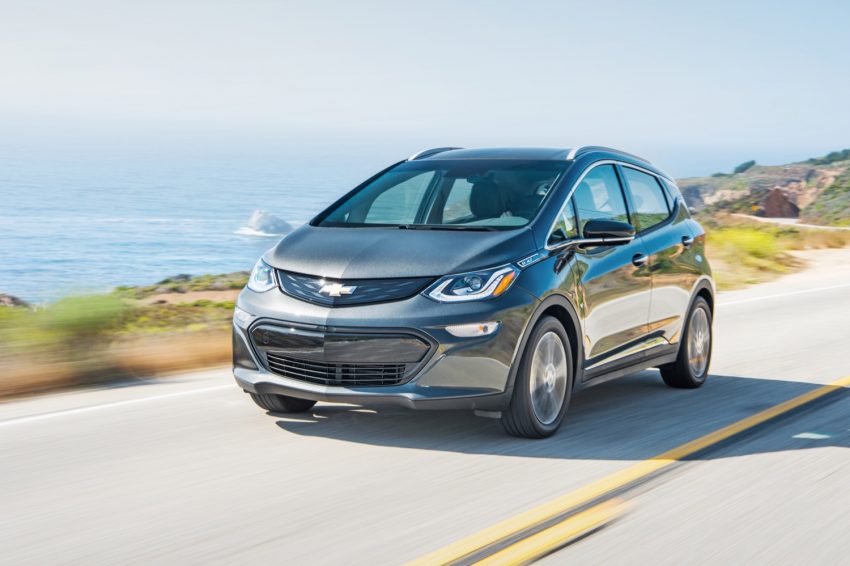
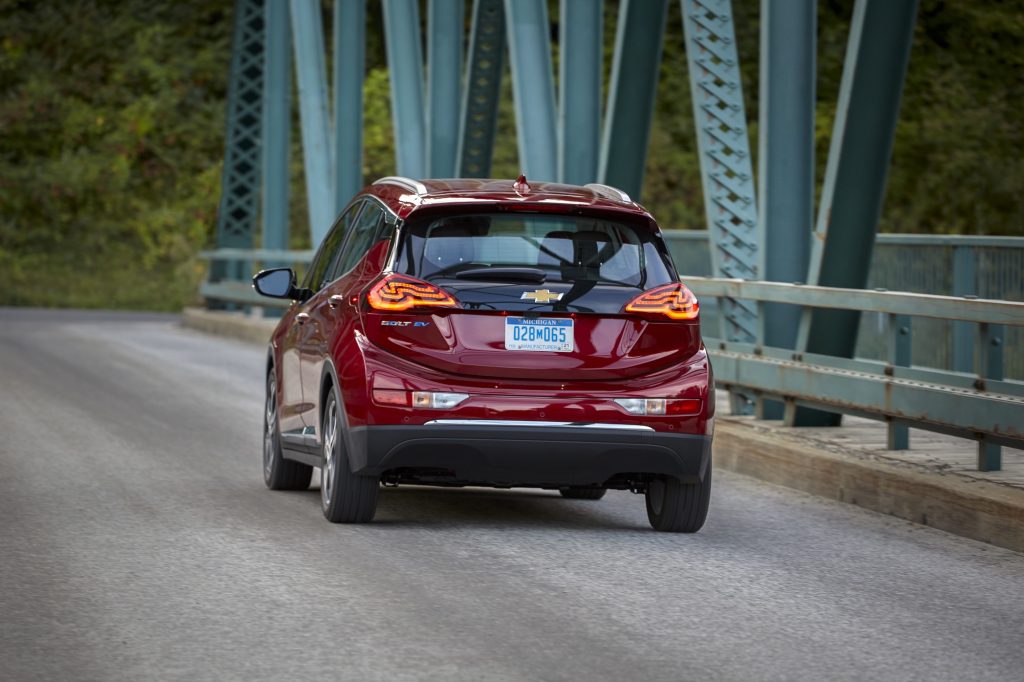
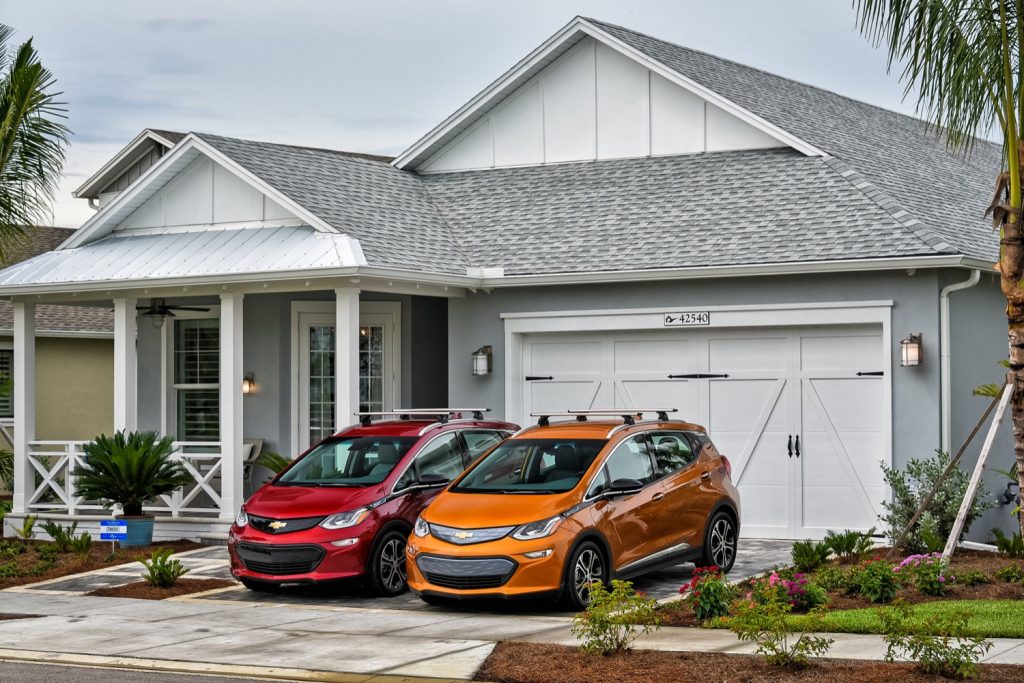
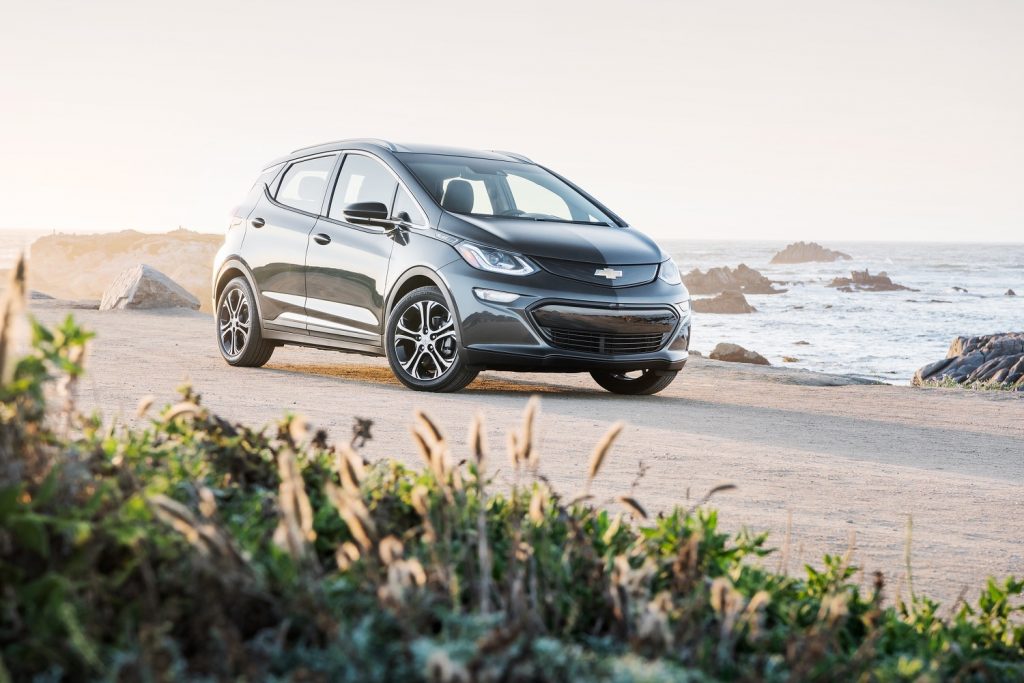

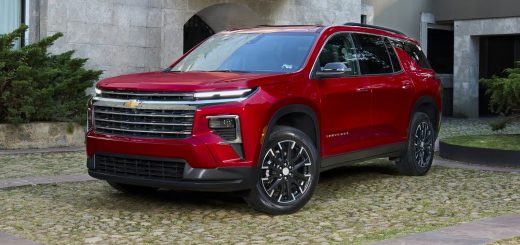
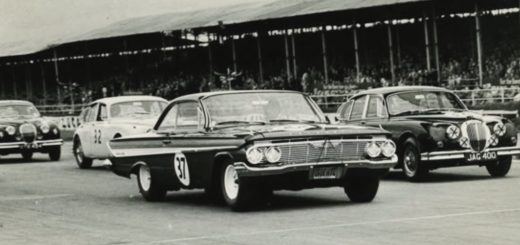
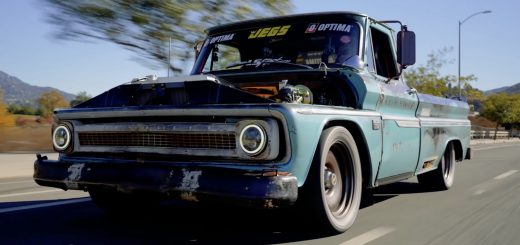
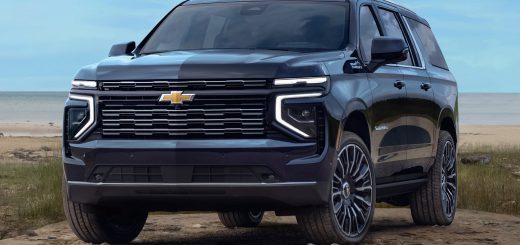
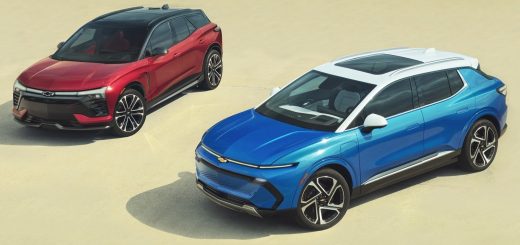




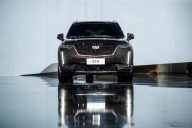
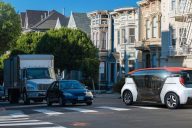
Comments
Like I said last week, time for GM to offer customers of 2017-2019 Bolt EV’s a 2021 Bolt in trade or battery replacement, ASAP, do not let this blow up into an ignition switch nightmare, lets show that management learned their lessons…
This is just the start of GM’s all-electric future, I doubt they’ll have this problem with the upcoming Ultium-powered EVs. But still, GM should fix this issue with the Bolt EV.
This isn’t a good start.
But GM will use their own Ultium batteries, different from those in the Bolt, made by KG Chem.
“the electric future is now!”
“The electric future is now…on fire in your driveway”. “Zero emissions”, that is until it’s burning in the driveway, or God forbid, your garage. Just imagine what is going into to the atmosphere, as one of these battery-powered turds is ablaze.
I guess you can say GM entered the EV market with a bang.
In all seriousness, GM should do the right thing. The Bolt was a great attempt but there is clearly a flaw somewhere that needs to be resolved. These problems happen with experimental technology.
I do nőt think the technology is so experimental, but LG it seems have some flaws in their manufacturing. Hyundai already recalled all the Kona EV’s for battery replacement and Kona used LG cells made in the same battery factory in South Korea, although GM claims there are some differences.
The lack of understanding of the problem shows the technology is not mature. When you understand how a technology works and what’s going on and a problem occurs, you can quickly say what’s the issue and fix it.
They’ve had this recall for more than 9 months, and what’s worse than not having a solution, is wrongly thinking they fixed it, endangering 2 more families with fires.
I’m really sticking to my guns that GM has the same exact problem as Hyundai with the anode/cathode shorting out that Hyundai found in theirs. GM can claim all the “differences” they want, I think they are playing stupid here and trying to avoid the costs of battery replacement under recall.
GM claimed there were differences in takata airbags too but are now recalling years later!
This is getting out of hand. I have a Bolt and my level 2 charger I paid a lot of money to have installed is INSIDE my garage, not outside where they want them to park. On the Bolt Facebook page dozens of people are getting buy backs. It looks like it is time to do the same. How do they expect people to charge and drive it like a regular vehicle?
these were sold at a huge loss and now people want gm to replace the battery. the chevrolet bolt is the money pit that just keeps growing.
Hehehe, typical gm!
Lowercase gm should call it an external combustion engine or ECE. It is also very green when you have to take the bus after your car is just a pile of burned debris.
Which company manufactured the batteries in the Bolt?
LG Chem
Looks like gm’s “all-electric” future is going up in smoke.
the electric car will never be the future, its not just them having issues they all are. Tesla has issues too. Batteries will never be stable and will always have issues. Anyone think this is the way forward is stupid. I bet many at GM are now looking to extend the 2035 date as it won’t be a good date. At least gm is selling a lot of trucks and Suv’s to cover the loses on these bolt issues.
Haha Joe – It would be humorous if it wasn’t so serious…
Tesla Model S’s traditionally have been dangerous – and their latest ‘Plaid’ vehicles have an over 1% failure rate – I don’t mean to be Mean, but they’re ten years after I purchased my Tesla Roadster – still somewhat of a Joke. I thought my Roadster had horrible reliability, but later Teslas seem to have even more trauma and trouble.
Thankfully gm hasn’t had any trouble (with fingers-crossed) with the later 2020’s to 2022’s yet. Hopefully the upcoming Ultiums also will be sufficiently tested to also be reliable…. It is 1/100th the cost to fix a design problem prior to mass manufacture than it is to try and shoe-horn a fix after mass production has begun.
The recall fix was to install software to inform someone that there is a battery problem? That is not a fix but a patch. The recall did not fix the problem.
A sensible move to »install an onboard diagnostic software capable of detecting major battery pack problems before they occur«
I hope this would also indicate the source of the problem in case of a fire.
The question is, in how many Bolt has this onboard diagnostic software detect a battery pack error BEFORE it led to a fire? Would then GM repair or exchange the defective battery in a “Battery Refurbishment Center”?
Opel, the former GM subsidiary in Europe, »has established a service for the maintenance of high voltage batteries. The facility set up ten years ago for the _Ampera_ has been brought right up to date. The center now checks and, if necessary, repairs the batteries of all company vehicles on the eCMP platform (currently Opel Corsa-e, Mokka-e) and the Combo-e, Vivaro-e and Zafira-e Life. « they write in a press release dated March 23, 2021, (you can find it by googling for the title “Opel is Electric: Battery Center in Rüsselsheim for Best Service”).
“Ampera” is the twin of the Chevrolet Volt. Neither the Ampere nor the Opel version of the Chevrolet Bolt, which is called Ampera-e as Opel and Vauxhall, are in the list of car models whose batteries are repaired or refurbished at this center.
gm should offer customers outside Lemon Law states a buyback. Replace the battery packs and then redistribute as used vehicles like VW did with their diesels.
Like I said, they should not use some questionable, corrupt, monopolistic and oligarchical South Korean conglomerate. Use American companies and suppliers!
Many hybrids have a 42-V electrical system, not 12-V.
I believe that “42” is a typo and you mean 48 Volt, four times 12.
BEVs (Battery Electric Vehicles) do, as I understand, run on 400 Volt. High end ones even on 800 Volt. Now, that can be deadly if the isolation is broken.
Observer7:
No Njia’s 42 volt comment was accurate. GM themselves have been pushing ’42 volt systems’ for 20 years – it only lately manifesting itself in Hybrid (non-plug-in) vehicles.
Of course, as only GM can do – they confuse the terminology since these 42 volt systems use 36 volt batteries. They have the silly notion that they should label the system by the fully-charged – charging voltage rather than the ‘at rest’ battery voltage.
If 120 year old systems were labeled this way, we would have had 7 volt cars and 14 volt cars, as opposed to 6 and 12. This system was supposedly necessary for electrically assisted power steering and brakes that most new cars have – except that engineers from supplier companies made them work on existing 12 volt systems.
Silly engineering managers either are so myopic that they are totally unfamiliar with existing vehicle systems (I’ve met such dopey people in real life), or they are just trying to make a pedantic show of themselves in ‘hopes’ of the next promotion by uninitiated non-technical management bosses.
Ignore my previous comment… It was 2 conjoined comments accidentally lumped together ending up stating nonsense.
Here’s the corrected comment:
“Observer7:
Yes, hybrid systems are generally 48 volt.
Njia’s 42 volt comment was accurate in the sense though that it was a ‘proposed’ system. GM themselves have been pushing ’42 volt systems’ for 20 years.
Of course, as only GM can do – they confuse the terminology since these 42 volt systems use 36 volt batteries. They have the silly notion that they should label the system by the fully-charged – charging voltage rather than the ‘at rest’ battery voltage.
If 120 year old systems were labeled this way, we would have had 7 volt cars and 14 volt cars, as opposed to 6 and 12. This system was supposedly necessary for electrically assisted power steering and brakes that most new cars have – except that engineers from supplier companies made them work on existing 12 volt systems.
Silly engineering managers either are so myopic that they are totally unfamiliar with existing vehicle systems (I’ve met such dopey people in real life), or they are just trying to make a pedantic show of themselves in ‘hopes’ of the next promotion by uninitiated non-technical management bosses.”
Well I have a 2019 Bolt which I love. Really a great car but have to be honest this ongoing saga is wearing on me as I am sure it is all 17-19 Bolt owners. The issue with the Battery is one thing, the other less obvious one is this situation is absolutely killing any and all residual value in this car. That directly impacts me as a consumer and certainly changes my opinion of GM overall. I also get frustrated seeing all these buy backs happening in CA and other states w strong Lemon Laws. Being in PA we dont have this level of protection so as I watch people all over getting new 2021-2 models or the like I see my fate play out in news/press releases and enthusiasts sites like this… Fun.
Just another example why people should only buy the Prius.
The Prius isn’t an EV.
Maybe they should have bought a Model 3.
GM has many examples of failure with new technology. Cadillac 4-6-8, Olds diesel, ABS brakes, EV1, Volt, Bolt and more.. But the real problem is how badly GM handled these design problems with owners. Never buy a GM product with new technology in the early years. Probably a good idea to avoid any vehicle with new tech in the early years.
Love my Tesla but my first one had too many problems. After two + years I was offered a new replacement Tesla for $5K which I jumped on. This Tesla is much better. I will not even look at other manufacturers new entries into the E vehicle field until they have been made for at least 3 years.
GM EV’s
General Maintenance Exploding Vehicles!
Welcome to the future, don’t leave in your garage!
Methinks that these are teething problems.
As expected the usual suspects, anti-EV agitating residents of the comments section are having a field day over this discrete case.
I used to love my 2017 Bolt. Now I worry that it is a powder keg. Mostly I’m so disappointed in gm!!!!!!! I have not received a single word from them since the two recent fires following the “final software fix.” I got the diagnostics report yesterday and NOT A WORD about parking outside and not charging overnight. When are you going to send info out to the people who don’t have time to be watching the Bolt news? Those are most likely the people who need to charge overnight in their garages!!
You are experiencing why owner loyalty for Chevrolet is 49% vs Toyota and Honda at about 80%. Crappy customer service, too many recalls, and product problems.
Next time get a Honda or Toyota EV when available.